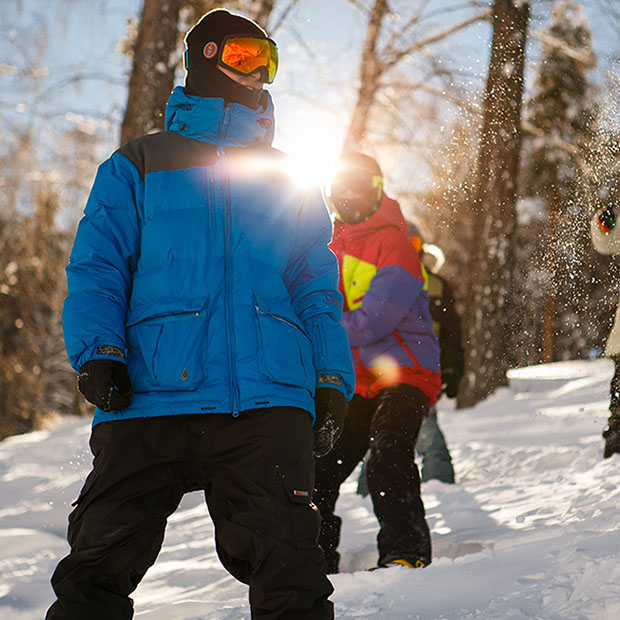Are You Ready With Your Winter Eye Gear?

The shorter days in winter are no excuse to slack off on eye protection!
The sun’s UV rays can do just as much damage to our eyes on a snowy slope as they can at the beach, and sometimes more. We probably don’t need sunscreen thanks to all of the layers of snow gear, but our eyes are still highly vulnerable to UV rays. Let’s take a look at some winter eye safety concerns and how we can protect against them.
The Tear Film Might Need Help in the Dry Winter Air
Winter often brings with it drier air than the other seasons, and we can make this a worse problem for our eyes by drying the air further with heaters in our cars and houses. If dry eye is a common problem for you, that unpleasant gritty feeling will probably be more intense unless you take steps like using a humidifier at home and relying on the seat warmer more than the heater when you’re out in the car.
What Is Snow Blindness?
Sunlight can affect our eyes in different ways in winter. If we don’t use eye protection on a snowy day, we could become snowblind due to a form of photokeratitis. The same thing happens to welders and people who go indoor tanning if they neglect their eye safety gear. Snowboarders and skiers are particularly vulnerable to photokeratitis because of the way the sunlight reflects off the sun, multiplying its harmful effects on the eyes.
The symptoms of snow blindness include pain and burning in the eyes, feeling like there’s something stuck in them, swollen eyelids, light sensitivity, watery eyes, blurred vision, headaches, and seeing exaggerated glare around light sources indoors. The real danger is that these symptoms don’t always appear immediately, so a skier or snowboarder might stay on the mountainside, exposing their eyes to more and more UV rays before they notice anything is wrong.
Snow Goggles: A Winter Athlete’s Best Friend
We strongly encourage anyone who plans to spend their days skiing or snowboarding to invest in eye safety by wearing a good pair of snow goggles. These are better than sunglasses at protecting your eyes, with the added advantages of being more secure and large enough to fit over the top of normal glasses. They can also include anti-fog coatings so that they won’t obscure your field of vision with steam.
Make sure to find out which colored lens option is best for snow sports. The colors aren’t just about appearances; they actually serve different purposes. Some are better than others in certain conditions. In a pinch, universal lenses work quite well in every condition.
Sunglasses Are Important in Any Season
With the exception of ski slopes where goggles reign supreme, UV-blocking sunglasses are essential winter eye protection. Polarized lenses are a great choice because they block the light coming in from certain angles, eliminating the powerful glare reflecting off the snow. We’re happy to help our patients find a great pair of sunglasses to protect their eyes in winter.
Come to Us With Your Winter Eye Protection Questions
We want to help our patients enjoy their favorite outdoor winter activities as much as possible, and we do that by helping you prioritize your eye safety. Before you head out to enjoy the snow, make sure you have the right gear. If you need suggestions on where to start looking, don’t hesitate to ask us.